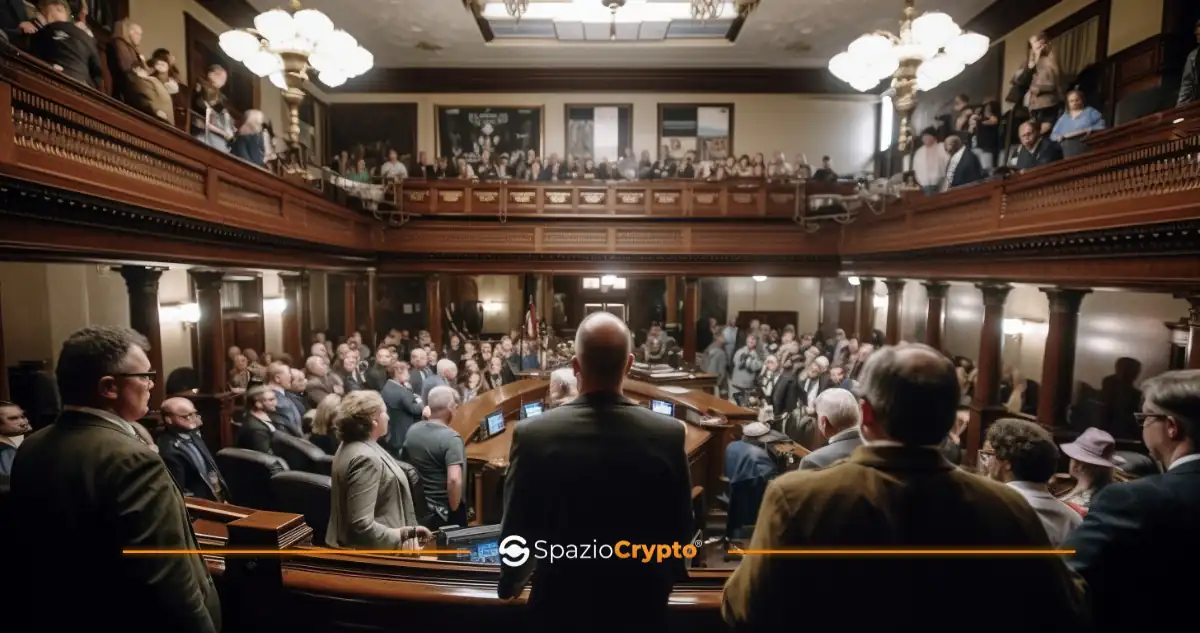Montana House lawmakers rejected the HB 429 Bitcoin reserve bill during the floor session. Had it been passed, it would have allowed the state to hold Bitcoin (BTC) as a state asset.
The development comes after the bill had been approved by the Labor and Enterprise Committee by a vote of 12-8 last week.
HB 429 on Reserve in Bitcoin Rejected
The HB 429 bill also included investments in stablecoin and precious metals. However, only Bitcoin met the requirement of a $750 billion market capitalisation.
Representative Curtis Schomer introduced the bill, calling it a 'valuable bill for the state treasury'. Schomer stressed the importance of diversifying state reserves in the face of political uncertainty and inflation.
Curtis said:
"The dollar is not strong, we shouldn't put all our eggs in one basket."

House Floor Session - Video
He described digital assets as modern investments with long-term potential, while metals represent historical hedges against economic instability.
He added:
"Montana will have more control over its economic growth and won't be susceptible to federal disruptions."
Schomer also pointed out that HB 429 would boost Montana's economic growth.
🚨 MONTANA Update:
- Bitcoin Laws (@Bitcoin_Laws) February 22, 2025
Bitcoin Reserve bill HB 429 failed to pass a second reading in the Montana House. It is now effectively dead.
The vote was 41 - 59. It was largely partisan, but many Republicans voted against the bill.
ANALYSIS:
HB 429 failed in the House, largely due to... pic.twitter.com/AJK8sPrf1N
X
However, the bill was defeated by a vote of 41-59. The measure was met with partisan division, with Republicans joining Democrats in opposition.
According to a publication on Bitcoin-related legislation, fiscal conservatives were divided on Bitcoin-related legislation. Many argued that using taxpayers' money to buy Bitcoin was risky and potentially speculative.
In this regard, State Representative Steven Kelly stated:
"It's still taxpayers' money, and we're responsible for it, so we have to protect it."
Supporters of the bill argued that risk is necessary for economic growth, especially in times of high inflation. According to them, inflation poses a greater threat to taxpayers. Proponents described Bitcoin as a tool to maintain and exponentially increase the value of state reserves.
With the rejection of HB 429, Montana joins Mississippi, North Dakota and Pennsylvania, states where similar Bitcoin proposals have been rejected. In addition to these, 20 other states currently have active proposals pending a decision.








